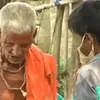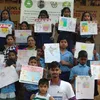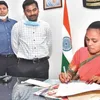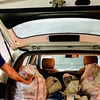Meet the railway engineer who has made it his life's mission to teach underprivileged children
Sushil Kumar Meena, a railway engineer, has dedicated his life to teaching underprivileged children across India. His NGO, Nirbhed Foundation, which has impacted the lives of 3,700 children so far, was also at the forefront of relief work during the lockdown.
A nightly stroll when railway engineer Sushil Kumar Meena was posted in Ghaziabad changed his life forever. He came across street children living in conditions that severely hindered their development and future.
To make things worse, these children, some of whom were as young as seven years old, were begging on the streets or working as ragpickers to aid their families. They often lived on the little scraps and leftovers from events as part of their everyday meals.
Around the same time, he came across a family that approached him to conduct their daughter’s wedding. But there was a catch – their daughter was just 12 years old! Sushil immediately reprimanded the parents, and was able to prevent the child from getting married.
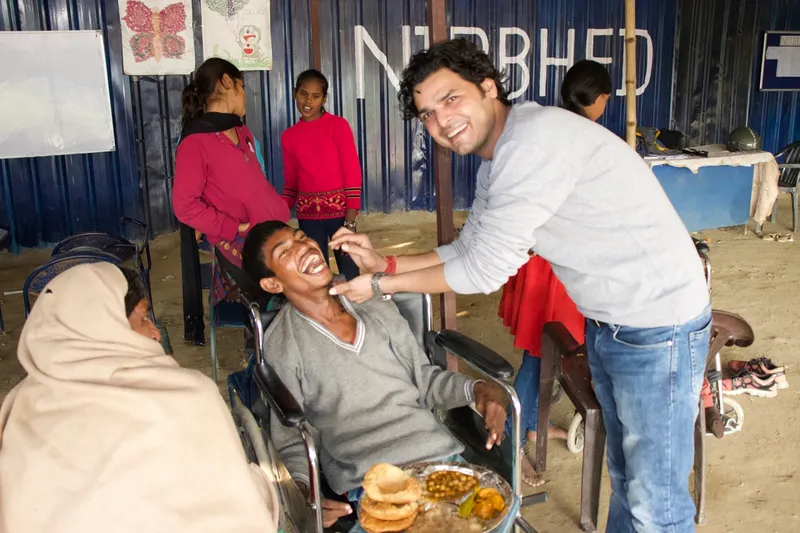
Sushil Kumar Meena
These incidents and many others inspired him to tackle the larger issue of children on the streets with little or no access to education.
Sushil resolved to dedicate his time to teaching children of ragpickers, beggars, and people of low-income groups. He provided essentials that their parents could not afford – books, stationery, food, clothes, uniforms, etc. – all from his own pocket, while also providing them with basic education.
This laid the foundation for the NGO Nirbhed Foundation that he co-founded in 2015, as a follow-up of his efforts in teaching street children during his postings in various cities. The foundation, which means without discrimination, now has 22 centres in many states across India.
“Nirbhed is all about having a place where people can come together without being discriminated on the basis of caste, colour, religion or sex, so that they can commit to worthwhile social work,” says Sushil.
The beginning of a life-long initiative
In 2013, the social worker had moved to Ghaziabad to take up a job in the Railways as a Section Engineer after completing his engineering from a government college in Kanpur.
As an active participant in the National Service Scheme (NSS) during his college days, Sushil was aware of the lack of basic infrastructure and resources in many villages across the country.
Once he was in Ghaziabad, he started teaching the children of Group D employees who were pursuing government service exams. He himself was preparing for the Civil Services exams but stopped his studies to teach these aspirants, and impart basic education to street children.
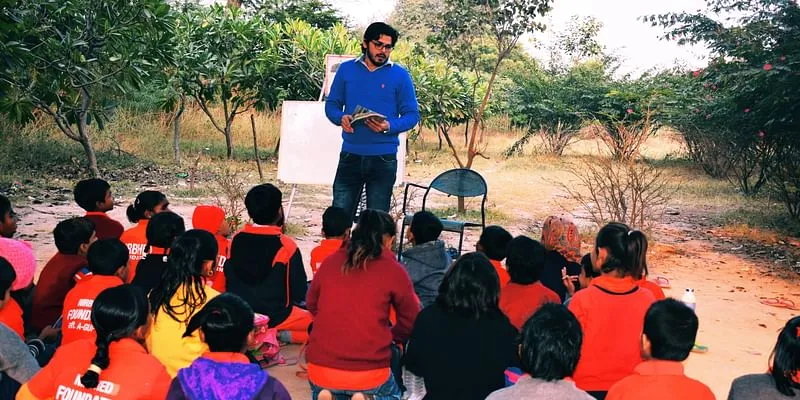
Sushil taking classes for underprivileged children in a makeshift classroom setup
It was not easy. Sushil had to take classes for five to six hours at a time and found it challenging to be a one-man army. He got in touch with Taruna, a college friend, and they began working together.
“Initially, we came across children who were about 14-15 years old, but had no primary education. We had to start from scratch: the alphabet,” Sushil explains.
“The good thing was that they were able to grasp everything quickly and we covered quite a bit in a short span of time. The idea was to warm them up to the lessons that their formally educated counterparts were learning, before going into the curriculum,” he adds.
A chain of giving
For about two years, the duo taught children diligently. However, at one point they were handling about 300 children and that’s when Sushil decided to expand his team and bring more volunteers on board. He even requested other NGOs and people to teach these children.
“I realised that people prefer joining a bigger group or an NGO. So, in 2015, we registered the Nirbhed Foundation, after which a number of volunteers joined us,” he says.
Presently, the Nirbhed Foundation teaches over 3,700 kids spread across Uttar Pradesh, Bihar, and Jharkhand through their 22 centres with the help of 110 permanent volunteers and others who work with them from time to time.
These centres are not big concrete structures, but are small makeshift classrooms with a few chairs and whiteboards.
In addition to teaching children, the NGO also provides job opportunities to parents of these children, especially their mothers. It trains them to sew uniforms and clothes for children.
Each one, teach one
Online classes were not a feasible idea with Nirbhed, since most of the places where they took classes faced network issues and frequent power failure.
Not one to be disappointed or deterred by circumstances, Sushil initiated a project called Main Bhi Hoon Shikshak (I am also a teacher) where they trained students of Classes 8 and above to be a teacher. These children could then teach younger children in and around their homes.

Children taking classes through the 'Main Bhi Hoon Shikshak' initiative, in their own smaller circles
“With the government order restricting the opening of schools, as outsiders we couldn’t take classes. However, the project ensured that people at home were taking classes, so we didn’t have to put a stop to their education,” Sushil says.
Highlighting the struggles that children face without school, Sushil says many students were paid to ensure they were not sent to work by their parents, especially in these difficult times.
The NGO conducted this initiative in four places in UP – Indirapuram, Muzaffarnagar, Meerut, and Gaya - and continued classes during the lockdown.
Unfortunately, the initiatives have not received any help from CSR funds or the government; members have been pitching in with their own money.
In 2017, they featured their cause on crowdfunding platform Milaap, but for a dismal reason altogether. In April 2019, due to certain land disputes, one of their centres was completely burnt to the ground. People opposed to the initiative set fire to one of the centres, charring most materials and the donations received in kind.
“I can never forget that night, especially the tears of the children and their parents who felt that their hopes and dreams had crashed. We did not back down, and started classes the same day,” Sushil says.
With the help of Milaap, he wanted to build a school and hostel facility for these students, a place where they could stay without the fear of being thrown out or denied basic rights.
But the pandemic put a halt to these projects. “We utilised the amount raised along with our own contributions for COVID-19 relief work where we distributed ration kits, essentials, and meals to children and their families ever since the lockdown was declared,” Sushil says.
Once the lockdown was extended, the NGO began distributing ration kits in UP and Bihar to over 4,300 families. It adopted 2,200 families who received regular meals. In total, the NGO claims to have distributed over 40 lakh meals to needy families.
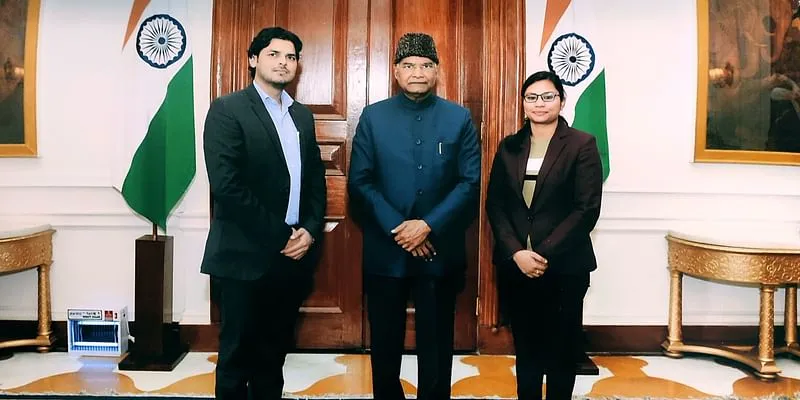
President Ram Nath Kovind recognised Nirbhed Foundation's tireless efforts despite the odds earlier this year
Challenges during the pandemic
One of the biggest challenges the NGO faced was reaching out to migrants who were travelling back to their homes. They did not have food, or even footwear to walk the distance safely.
“We actually witnessed the harsh reality of the situation at city exits and bus stands. We distributed meals, footwear, masks, and other essentials at these places. We even offered to drop people to distances of about 250 km through buses,” Sushil says.
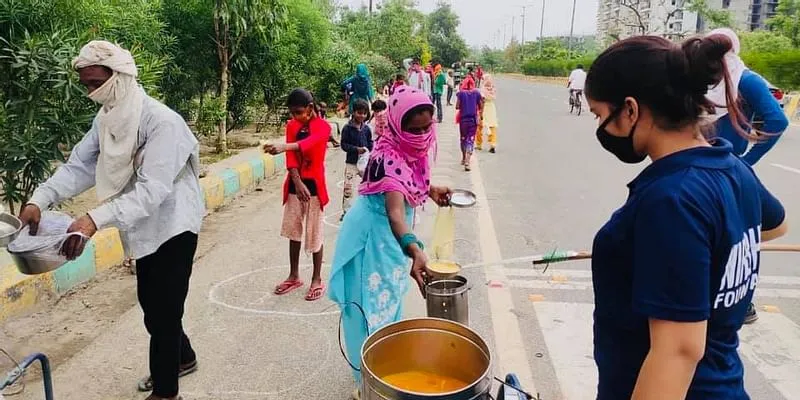
Volunteers at a food distribution drive during the lockdown
Sushil recalls the severity of what he witnessed. “One of the pipelines on the road was leaking. Most of these migrants would use this water for everything, from washing to bathing… even for drinking,” Sushil explains. “Distribution was one thing, but reality was definitely something else.”
Talking about his plans for his NGO and his own life, Sushil hopes to educate as many children as possible. He says if two people can pull off such an initiative, then a lot more can happen when a large number of people join hands to help.
“Education is every child’s right and if we can provide that, we will be able to prevent child labour. I want to be able to stand up for those who need my help,” Sushil says.
Edited by Rekha Balakrishnan


